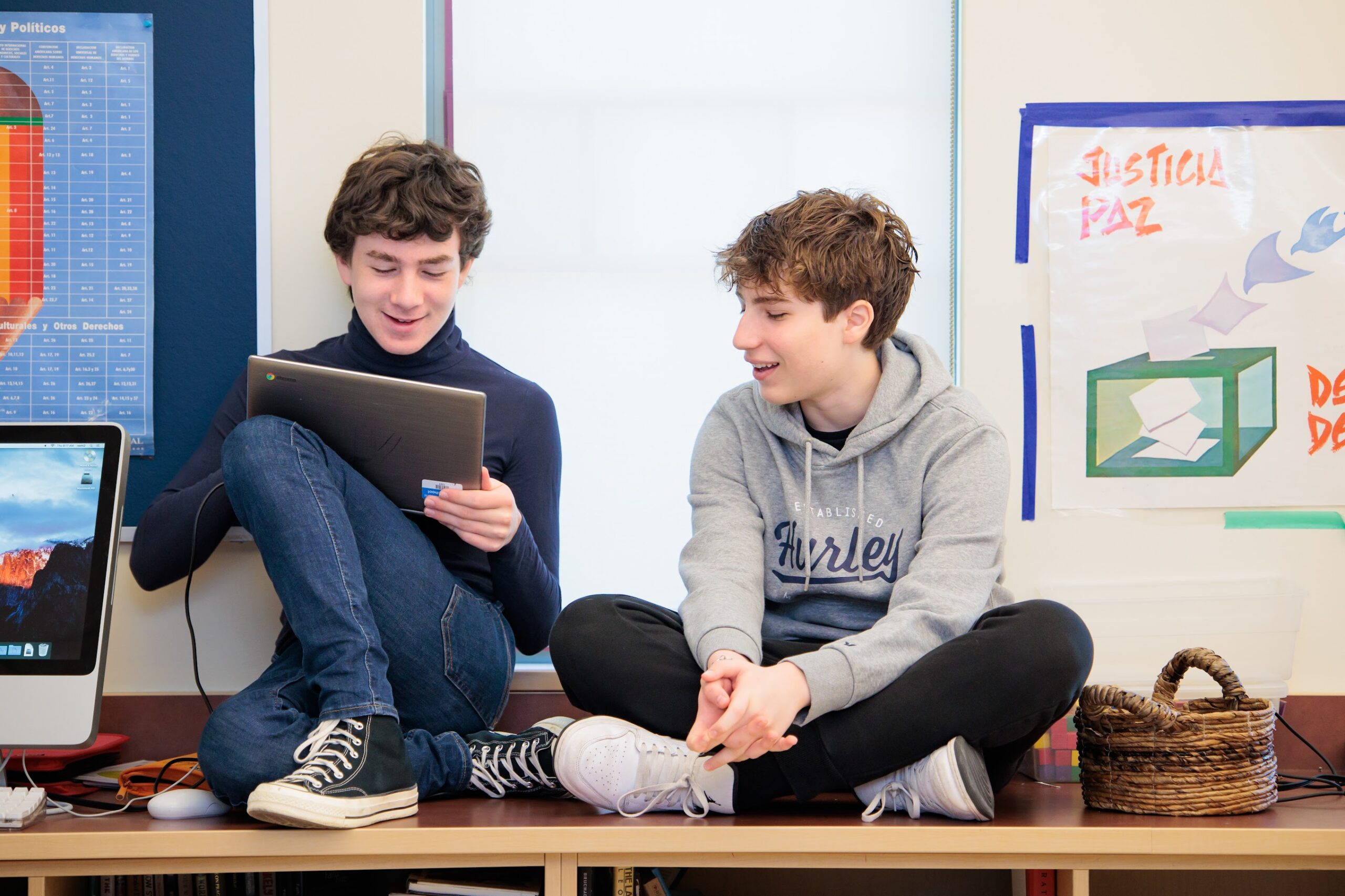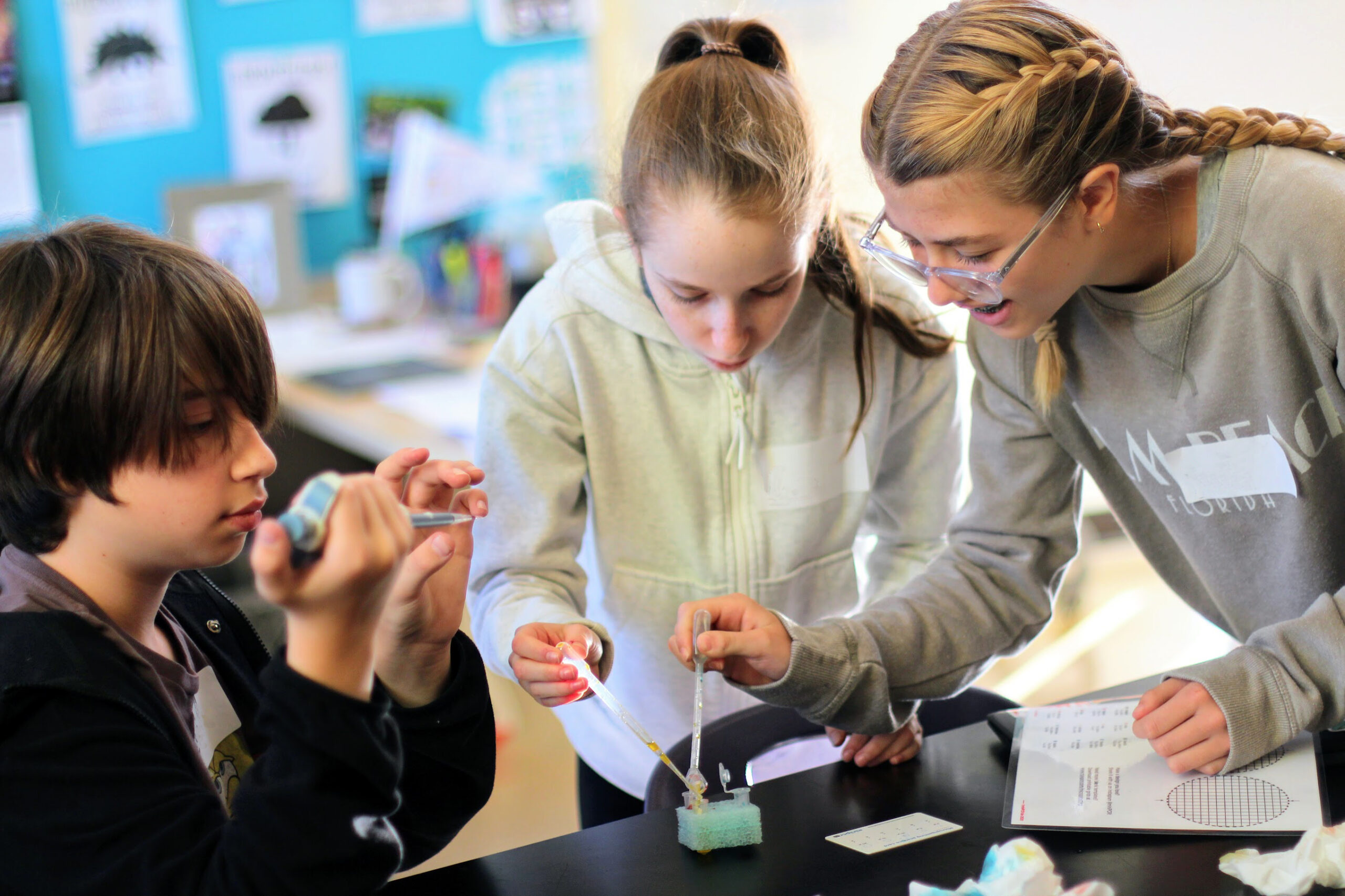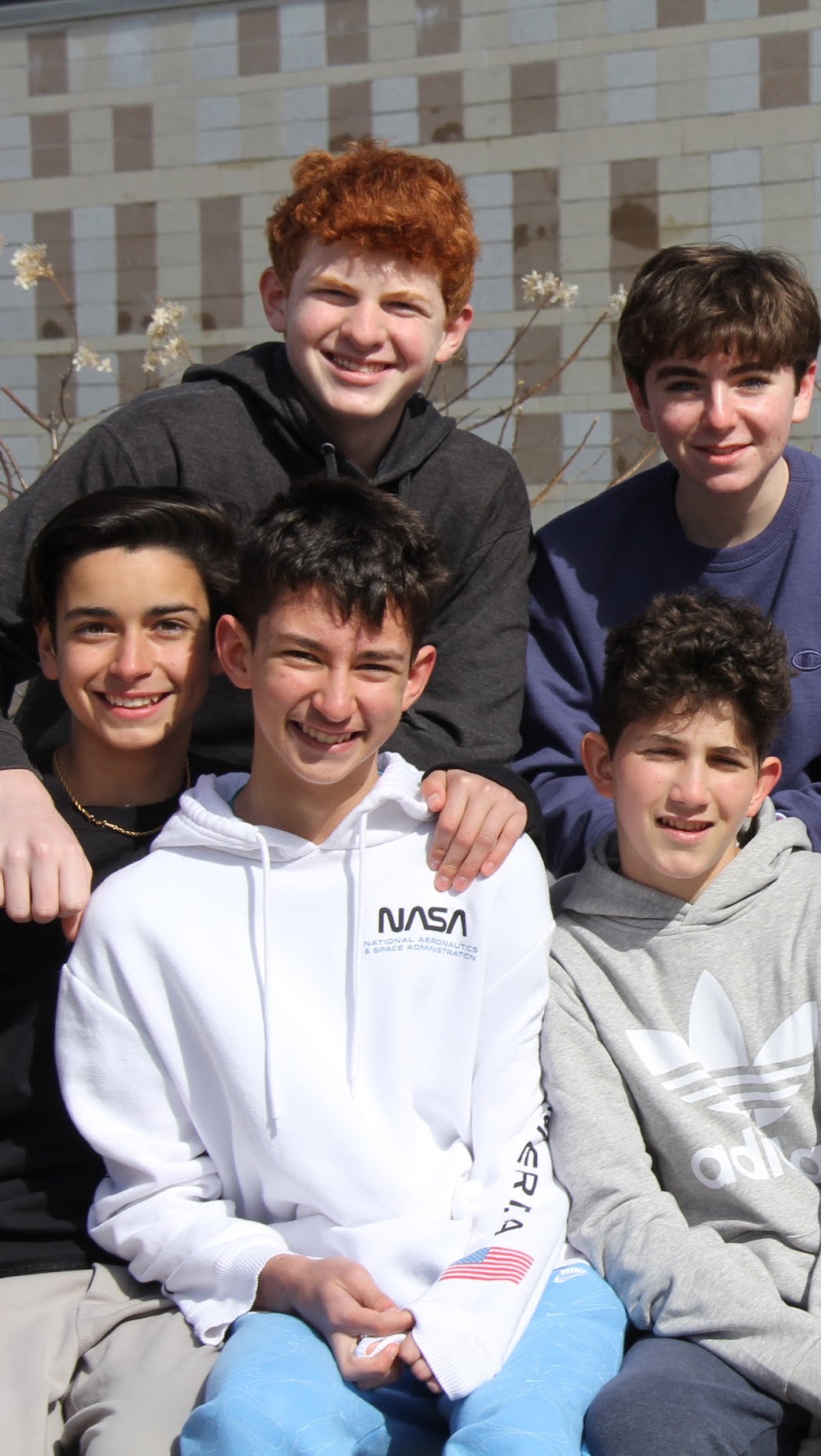ACADEMICS
MIDDLE SCHOOL
Rashi’s innovative and transformational approach to education develops students’ understanding of who they are and the world around them. Rashi Middle School graduates feel the power that they have, not only individually but also collectively, to change the world.
Congratulations to Rashi’s Middle School student council on their recognition as a 2025 National [Gold] Council of Excellence by the National Association of Student Councils (NASC).
Rigorous Academics
The Rashi Middle School, comprising Grades 6-8, is a very special experience. Students benefit from outstanding academics and a whole-child approach to education. Grade 6 is a common entry point, with additional students beginning in Grade 7.
Guided by faculty who are experts in teaching as well as deeply knowledgeable and passionate about their subject matter, Middle School students engage with a rigorous academic program. They develop traditional academic skills—writing, close textual analysis, research, presentation—while building 21st Century Skills like critical thinking, collaboration, information synthesis, flexibility, and media literacy, giving them the essential toolkit to thrive in high school and beyond. With an emphasis on student-centered learning, our students enjoy hands-on, exploratory, project-based, and inquiry-based approaches that foster growth while building independence and study autonomy. Middle schoolers are pushed to take academic risks as teachers differentiate instruction and curriculum; in this way, every student has the scaffolding they need to reach their full potential. Our caring, supportive environment fosters strong connections among classmates and between students and teachers.
Rashi Middle School graduates comprehend that today’s world is complex. Rather than learning about each subject in a silo, students take on interdisciplinary units and projects. They dissect real-world issues and intersectionality, examine these problems using many different lenses, and consider all of the stakeholders as they ideate and iterate to provide solutions.
In Grade 6, for example, students tackle multifaceted problems related to resource scarcity. They design potential solutions and create advocacy campaigns in a project that integrates science, language arts, Jewish studies, and social studies. Grade 7 students embark on a year-long curriculum focused on civil rights and racial justice in the United States; they are empowered to engage and wrestle with these issues through anti-bias workshops, curricular pieces, and an interdisciplinary unit. For its capstone project, the Grade 8 class publishes an anthology of students’ reflective pieces, from the analytical to the artistic, that explore essential questions like, “How do tragedy and trauma influence an individual’s identity and choices?” and, “What is survival? What does it mean to be a survivor? To be a human?” To inform their exploration, students draw on what they have learned from their studies on the Holocaust… from reading Elie Wiesel’s Night and other literary works about the trauma, tragedy, and survival of specific populations in recent history, to conducting interviews with Holocaust survivors and local refugees.
“The Rashi Middle School honors student voice. Their passions become our faculty’s passions. As the student leaders of our school, so too do they inspire the rest of the community.”
Empowered Young Adults
Our annual Tamchui project (meaning “community collection plate,” a school-wide philanthropy and social justice initiative) is a superb example of student leadership. Not only do Rashi middle schoolers choose the social justice issues that the school highlights each year, the students dive deep into researching these topics and the organizations that serve them. Next, our middle schoolers select the organizations they feel are most effective, interview their representatives to learn more about the organization’s work, and collaborate with them and Rashi’s Lower School faculty to create and teach active, student-centered lessons that inspire their younger peers.
With social justice and identity as central themes in our curriculum, and through robust advisory and student leadership programs, middle school students learn how to be their best selves and lead for a better tomorrow. Rashi graduates are self-aware, confident, passionate, and intellectually engaged. They are empowered to make a difference and have moral foundations grounded in Jewish values to make ethical decisions. They are change agents, advocates, and activists who listen openly, think critically, and understand the complexities around problems in our world. They not only empathize but take action to bring about a more just world.
Partnerships
The Rashi Middle School partners with many organizations, enriching the Middle School experience. Programs and organizations include the following:
- Anti-Defamation League (ADL)
- No Room for Hate
- Youth Peer Training
- Facing History, Community Matters Advisory Program
- Greenpeace
- JFS- Backpack Initiative
- Keshet
- Lenny Zakim Fund
- Massachusetts Coalition for Transgender Rights
- Massachusetts Coalition To Prevent Gun Violence
- Minding Your Mind
- Sandy Hook Promise
Click here to learn more about Rashi school partnerships.
Middle School Curriculum
Grade




